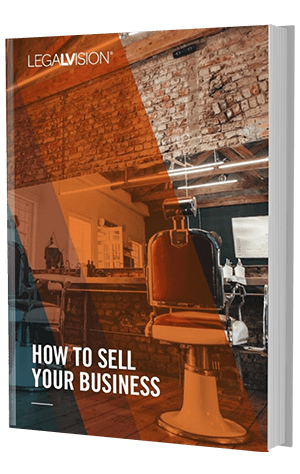When buying or selling any business, it is essential to identify the type of business and assets that form part of the sale or purchase. For licensed businesses, your critical assets include equipment, licences, stock, leases, goodwill, furniture, intellectual property and any of your service or supplier contracts. When deciding whether to buy or sell a licensed business, you must consider several essential legal issues. This article will set out some critical legal issues for your consideration.

When you are ready to sell your business and begin the next chapter, it is important to understand the moving parts that will impact a successful sale.
This How to Sell Your Business Guide covers all the essential topics you need to know about selling your business.
Asset Value in a Licensed Business
Many of your assets inevitably depreciate over time. This is often a result of you having purchased these assets on an as-needed basis and, therefore, at different times. For example, any of the assets you purchased before the introduction of Capital Gains Tax (CGT) in 1985 might hold a different value from those you acquired after 1985.
Usually, the seller and buyer have conflicting interests in the value of depreciable assets. A buyer generally wants to value the assets higher so that depreciation is higher in the future. In contrast, a seller will commonly record the value to avoid paying tax on any excess over that recorded amount. Either way, it is a good idea to consider the recorded values for the completion date instead of relying on the last end-of-financial-year values.
Due Diligence of a Licensed Business
You must also consider whether a clause in the contract will allow the buyer to conduct due diligence. Put simply, due diligence is where the buyer conducts their own internal investigations of a business prior to purchasing it.
Due diligence clauses commonly give buyers the right to rescind the contract if they are not satisfied with their findings. Typically, when this type of clause exists, the seller will have some sort of security through a non-refundable deposit which it can retain or put towards its costs.
Continue reading this article below the formCall 1300 544 755 for urgent assistance.
Otherwise, complete this form, and we will contact you within one business day.
Completing the Licensed Business Sale
When buying or selling a licensed business, one of your primary concerns might be the transfer of ownership. You need to ensure that the contract identifies:
- when transfers need to occur;
- who is responsible for doing what; and
- when the benefits and obligations under a contract transfer to the other party.
Sometimes, certain items will be excluded from a sale which the seller should identify. If the parties fail to meet their contractual obligations in time, the innocent party may be able to terminate it.
Key Takeaways
In a business sale or purchase, there are a few legal issues you should consider, including:
- stock valuations;
- warranties as to turnover and profitability;
- employee entitlements; and
- GST.
If you need help buying or selling a licensed business, our experienced business sales lawyers can assist as part of our LegalVision membership. For a low monthly fee, you will have unlimited access to lawyers to answer your questions and draft and review your documents. Call us today on 1300 544 755 or visit our membership page.
Frequently Asked Questions
Most sale of business agreements will contain a list of “conditions precedent” that must be satisfied for the deal to succeed. A common condition precedent is that the buyer must be reasonably satisfied with the due diligence of the business. Generally, if you have a reasonable concern that the seller cannot rectify, you can terminate the agreement or renegotiate the purchase price.
Suppose there are crucial assets you cannot transfer or sell due to, for example, a third party having an ownership interest in that asset. In this instance, you can enter an irrevocable licence arrangement with the buyer in that case. For example, if you co-own the intellectual property in your company’s branding with a third-party designer, you could agree with the co-owner to provide the buyer with a licence to use this property.
We appreciate your feedback – your submission has been successfully received.











